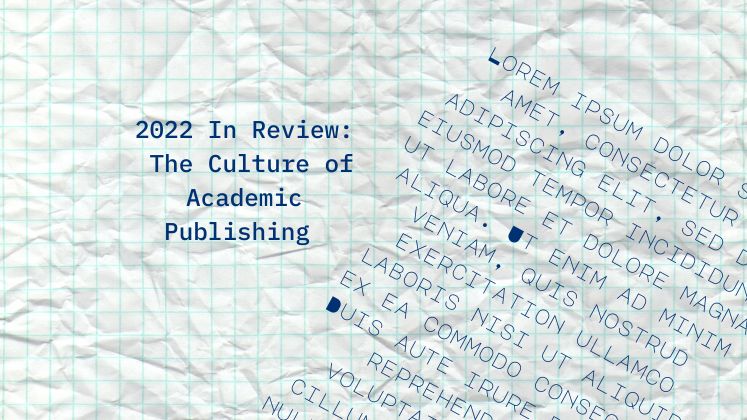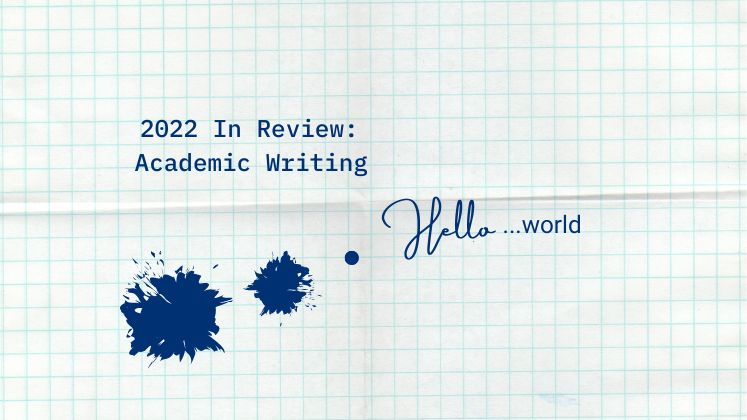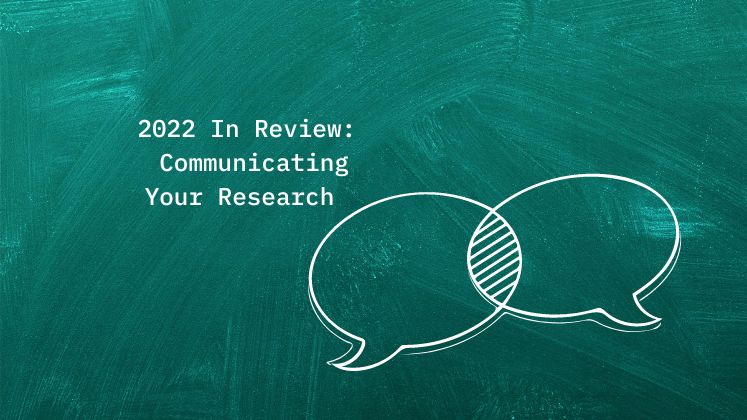 The ways in research shapes and influences the wider world are a key focus of the LSE Impact Blog. This post brings together eleven of the top posts on the subject of research impact that featured on the LSE Impact Blog in 2022.
The ways in research shapes and influences the wider world are a key focus of the LSE Impact Blog. This post brings together eleven of the top posts on the subject of research impact that featured on the LSE Impact Blog in 2022.
The true costs of knowledge exchange – a checklist
 Planning and budgeting knowledge exchange activities can often be a black box exercise, with activity occurring in an ad-hoc and un-costed fashion. Drawing on case studies of successful knowledge exchange projects, Denis Karcher and Chris Cvitanovic present a framework for where costs fall in knowledge exchange processes and a checklist for researchers looking to plan for knowledge exchange.
Planning and budgeting knowledge exchange activities can often be a black box exercise, with activity occurring in an ad-hoc and un-costed fashion. Drawing on case studies of successful knowledge exchange projects, Denis Karcher and Chris Cvitanovic present a framework for where costs fall in knowledge exchange processes and a checklist for researchers looking to plan for knowledge exchange.
When collaboration becomes co-optation: Citizen Science as Public Relations
 Citizen science and its counterpart citizen social science are becoming increasingly established as research tools to address global and societal challenges. However, increased interaction between research and society also presents questions related to justice, power, and inequality. Based on their recent research into the commercial application of citizen science Sarah Blacker, Aya Hirata Kimura, and Abby Kinchy discuss how citizen science can become entangled with commercial interests that often run counter to the aims of research.
Citizen science and its counterpart citizen social science are becoming increasingly established as research tools to address global and societal challenges. However, increased interaction between research and society also presents questions related to justice, power, and inequality. Based on their recent research into the commercial application of citizen science Sarah Blacker, Aya Hirata Kimura, and Abby Kinchy discuss how citizen science can become entangled with commercial interests that often run counter to the aims of research.
UK in a Changing Europe: injecting social science into a polarised political debate
 Reflecting on seven years of UK in a Changing Europe, Anand Menon and Jill Rutter discuss how the project has brought social science insights into the mainstream of a polarised public debate. Highlighting how this mode of engagement falls outside of orthodox ‘REF Impact’ and lessons learned, they suggest there are further opportunities to deploy similar models to other socio-political challenges.
Reflecting on seven years of UK in a Changing Europe, Anand Menon and Jill Rutter discuss how the project has brought social science insights into the mainstream of a polarised public debate. Highlighting how this mode of engagement falls outside of orthodox ‘REF Impact’ and lessons learned, they suggest there are further opportunities to deploy similar models to other socio-political challenges.
 Two recent papers have again brought into question the value and effectiveness of ‘nudge’ based policy interventions. Tony Hockley argues that as much as these studies reveal about nudge policies, they say more about the complex way social and behavioural science concepts have moved into the mainstream of policymaking.
Two recent papers have again brought into question the value and effectiveness of ‘nudge’ based policy interventions. Tony Hockley argues that as much as these studies reveal about nudge policies, they say more about the complex way social and behavioural science concepts have moved into the mainstream of policymaking.
 Impact has in the past two REF cycles established itself as an integral criteria of research assessment in the UK. However, the kinds of impacts that are valued and the ways in which the ‘reach’ and ‘significance’ of impact are interpreted by institutions can conversely de-value certain kinds of transformative research. Taking this into account, Sonja Marzi and Rachel Pain argue for the importance of impact-in-process and the role research itself can play in producing meaningful changes in people’s lives.
Impact has in the past two REF cycles established itself as an integral criteria of research assessment in the UK. However, the kinds of impacts that are valued and the ways in which the ‘reach’ and ‘significance’ of impact are interpreted by institutions can conversely de-value certain kinds of transformative research. Taking this into account, Sonja Marzi and Rachel Pain argue for the importance of impact-in-process and the role research itself can play in producing meaningful changes in people’s lives.
We live in an age of projects – Research impact should reflect this
 In the second of two blogposts exploring how research impact is increasingly dependent on expertise embedded within organisations rather than traditional research outputs, Rebecca Vine and Paul Nightingale discuss the role of projects as a focus for collaborative research activity. Highlighting how projects are vital to innovation in service-based economies, they show how a recent research collaboration has aligned research expertise to improve the delivery of some of the UK’s largest projects.
In the second of two blogposts exploring how research impact is increasingly dependent on expertise embedded within organisations rather than traditional research outputs, Rebecca Vine and Paul Nightingale discuss the role of projects as a focus for collaborative research activity. Highlighting how projects are vital to innovation in service-based economies, they show how a recent research collaboration has aligned research expertise to improve the delivery of some of the UK’s largest projects.
 For researchers in Civil Society Organisations (CSOs) publishing and collaborating with academics on mutually beneficial projects is uncommon. Drawing on their experience of a major collaborative international research project on public attitudes towards inequality that resulted in a flagship report for Oxfam and a series of academic papers, Franziska Mager, discusses the barriers and benefits to research that brings together charities and academia and how this reflects different valuations of impact.
For researchers in Civil Society Organisations (CSOs) publishing and collaborating with academics on mutually beneficial projects is uncommon. Drawing on their experience of a major collaborative international research project on public attitudes towards inequality that resulted in a flagship report for Oxfam and a series of academic papers, Franziska Mager, discusses the barriers and benefits to research that brings together charities and academia and how this reflects different valuations of impact.
Quick, but not dirty – Can rapid evidence reviews reliably inform policy?
 The COVID-19 pandemic created an unprecedented and time critical demand for policy relevant evidence syntheses and in so doing demonstrated how timely evidence reviews can shape policymaking. As the policy crisis of COVID-19 recedes, research is underway to assess how these methods could be applied to other policy areas. In this post, Jonathan Breckon considers how rapid evidence reviews have been used, the potential pitfalls in adopting rapid research methods and invites readers to contribute to work being carried out by the Parliamentary Office for Science and Technology, International Public Policy Observatory, and Capabilities in Academic Policy Engagement, into how rapid reviews can be deployed in future.
The COVID-19 pandemic created an unprecedented and time critical demand for policy relevant evidence syntheses and in so doing demonstrated how timely evidence reviews can shape policymaking. As the policy crisis of COVID-19 recedes, research is underway to assess how these methods could be applied to other policy areas. In this post, Jonathan Breckon considers how rapid evidence reviews have been used, the potential pitfalls in adopting rapid research methods and invites readers to contribute to work being carried out by the Parliamentary Office for Science and Technology, International Public Policy Observatory, and Capabilities in Academic Policy Engagement, into how rapid reviews can be deployed in future.
After half a century of ‘wicked’ policy problems, are we any better at managing them?
 Since the term was popularised by Rittel and Webber in their seminal article, Dilemmas in a general theory of planning, the concept of ‘wicked problems’, or those that are resistant to optimal solutions, has posed a significant challenge to the creation of public policy. In this post, Brian Head, draws on his new book, Wicked Problems in Public Policy, to discuss how approaches to wicked problems and the challenges caused by an increasingly complex and polarised society have developed in recent years and argues for an approach aimed at better managing wicked problems, as opposed to seeking to directly solve them.
Since the term was popularised by Rittel and Webber in their seminal article, Dilemmas in a general theory of planning, the concept of ‘wicked problems’, or those that are resistant to optimal solutions, has posed a significant challenge to the creation of public policy. In this post, Brian Head, draws on his new book, Wicked Problems in Public Policy, to discuss how approaches to wicked problems and the challenges caused by an increasingly complex and polarised society have developed in recent years and argues for an approach aimed at better managing wicked problems, as opposed to seeking to directly solve them.
We read 70 impact strategies from across the globe – we found only two different strategies.
 Reporting on their recent international survey of impact strategies, Mark Reed and Saskia Gent discuss their findings, identify two main types of impact strategy and analyse six key themes that comprise the current sector standard for good impact strategies.
Reporting on their recent international survey of impact strategies, Mark Reed and Saskia Gent discuss their findings, identify two main types of impact strategy and analyse six key themes that comprise the current sector standard for good impact strategies.
Can blogs change the world? Uncovering pathways to policy influence through LSE Blogs
 For some academics being asked to write a research blogpost can feel like shouting into the void, another addition to a constantly expanding mass of online content. However, the network of connections that can spring out of these engagements and their potential to influence the wider world are significant, and they are also increasingly traceable. In this post Kat Hart uses the Overton database to assess the policy influence of the LSE Blogs platform and the way in which academic blogging can inform public and policy debates.
For some academics being asked to write a research blogpost can feel like shouting into the void, another addition to a constantly expanding mass of online content. However, the network of connections that can spring out of these engagements and their potential to influence the wider world are significant, and they are also increasingly traceable. In this post Kat Hart uses the Overton database to assess the policy influence of the LSE Blogs platform and the way in which academic blogging can inform public and policy debates.
The content generated on this blog is for information purposes only. This Article gives the views and opinions of the authors and does not reflect the views and opinions of the Impact of Social Science blog (the blog), nor of the London School of Economics and Political Science. Please review our comments policy if you have any concerns on posting a comment below.
Image Credit: LSE Impact Blog via Unsplash.







